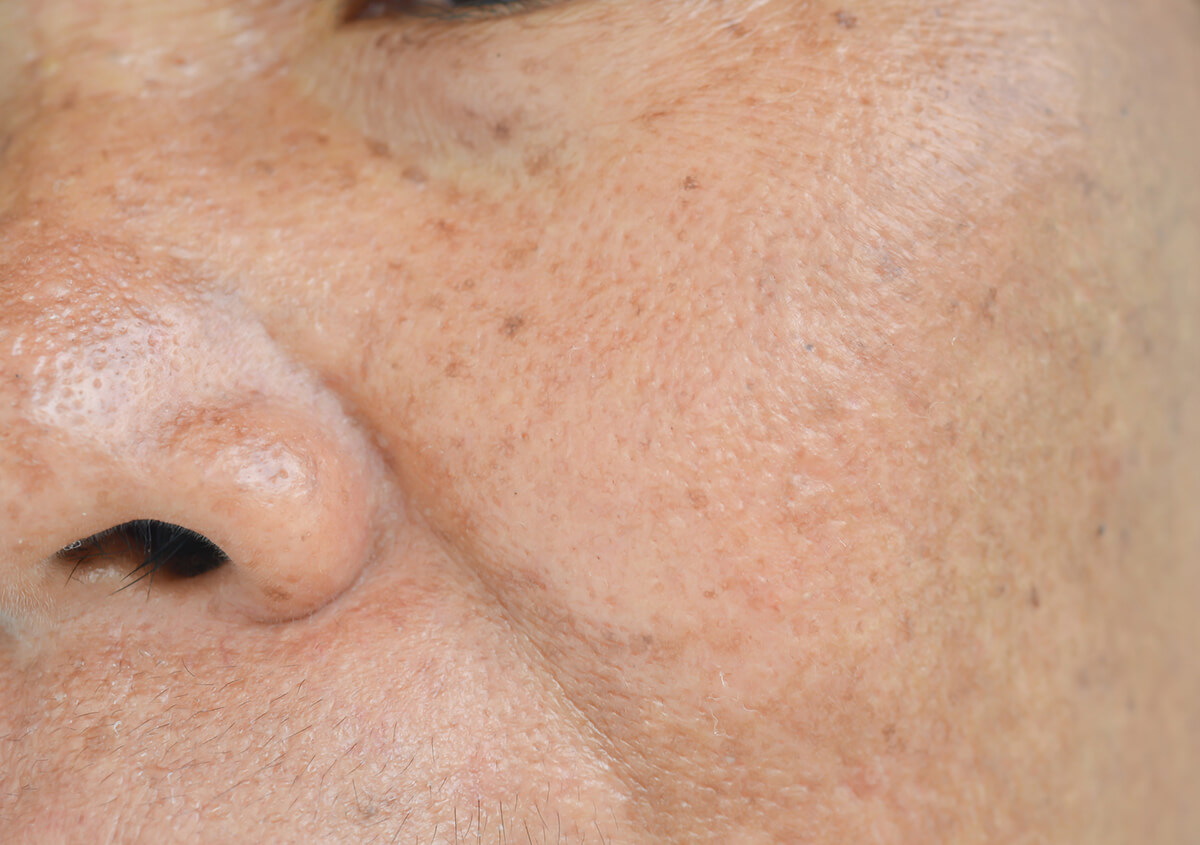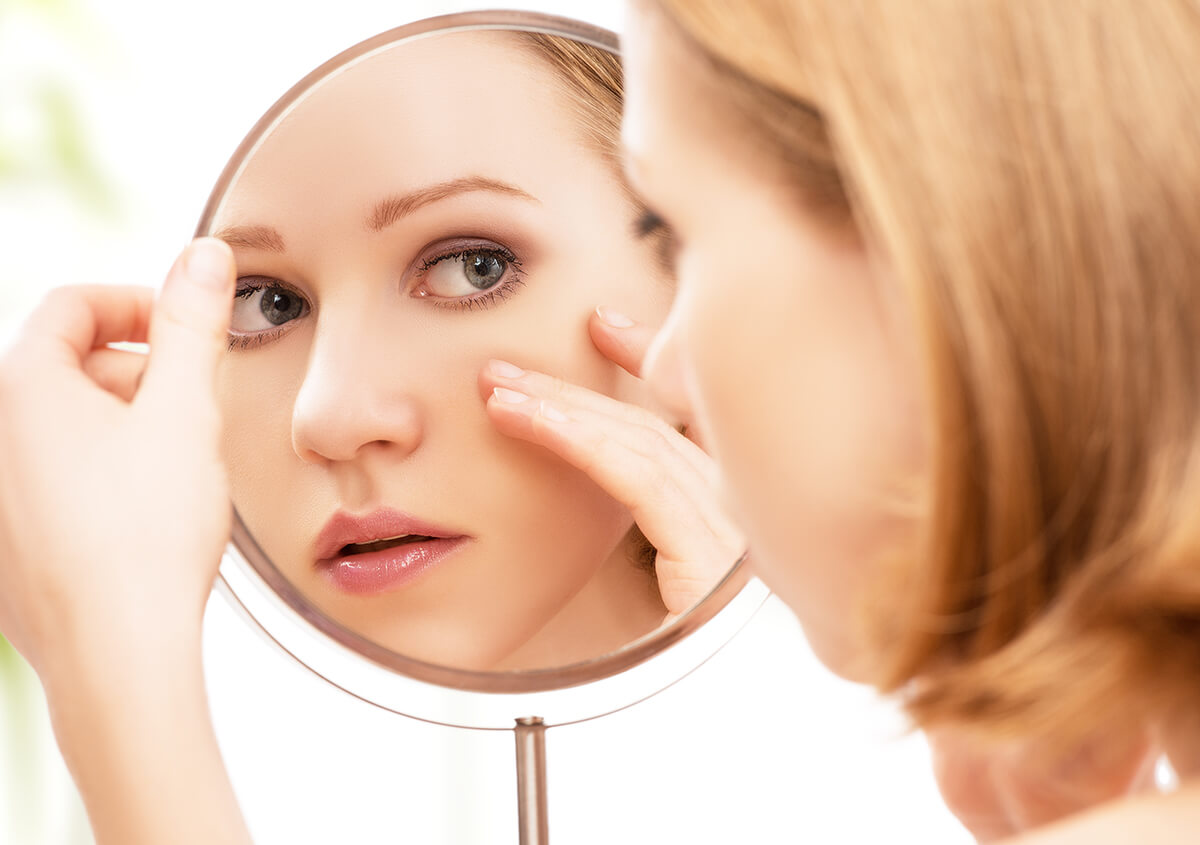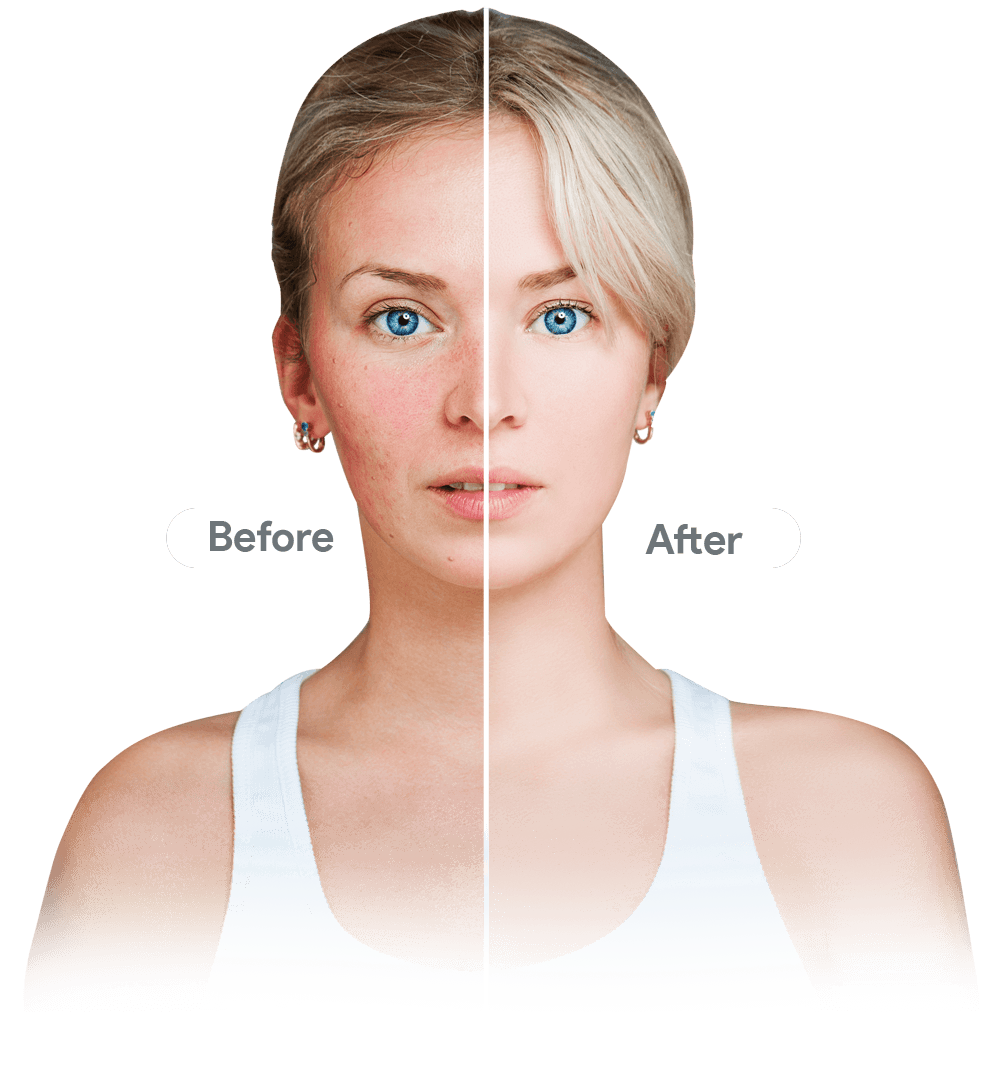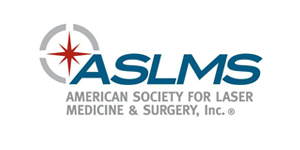Hyperpigmentation
The pigmentation (melanin) in your skin gives it color. In healthy skin, the pigmentation is evenly distributed, giving you an even skin tone. However, various skin damage or diseases can cause excess melanin production, making areas of the skin dark. This is known as hyperpigmentation.
Brown spots, or other skin tone issues, can be caused by a variety of factors, including age. One of the most common causes is sun damage. A type of brown spots often called age spots or liver spots are more accurately dubbed as sunspots. They usually occur in individuals with a history of sun damage on the face, hands, or other exposed areas of skin.
Melasma
One of the most common types of hyperpigmentation is melasma. This condition primarily affects women. It is most prevalent in expectant mothers, earning it the nickname “Mask of Pregnancy,” although anyone can get melasma. It appears as dark brown, sometimes grayish, patches of skin, usually on the face.
Melasma is triggered by exposure to harmful UV rays, and the best prevention is sun protection. This includes wearing a wide-brimmed sun hat, long sleeves, and broad-spectrum sunscreen. Hormonal changes, such as those experienced during pregnancy, make an individual susceptible to melasma. Certain birth control pills, medications, and even cosmetic products can also increase your risk of developing melasma.
Diagnosis and treatment
In many cases, melasma or other pigmentation problems can be diagnosed with a simple visual examination. However, if Dr. Achtman or Dr. McConnell suspects that a spot may be a sign of another condition, such as skin cancer, they may perform further testing.
The best treatment depends on the nature of the condition, your skin type, and other factors. Your personalized treatment plan may begin with a topical medication to lighten the skin. If this is not sufficient, chemical peels, microdermabrasion, laser therapy, or other gentle procedures may be used.
Although we can help reduce the signs of melasma and brown spots, it is up to you to prevent them from returning. Be sure to ask us about the best sun protection products for your skin type.
Let us help you discover your most beautiful, even, youthful skin. Call (972) 362-9567 and schedule an appointment at DSA Dermatology today.
FAQs
Are brown spots and melasma the same thing?
While both are hyperpigmentation conditions, they are not the same. Brown spots, also called age spots or liver spots, typically occur due to sun damage. Melasma, on the other hand, is often hormonal and appears as larger patches of darkened skin.
How can I prevent the development of brown spots?
There are several key preventative measures you can take to reduce hyperpigmentation. These include applying broad-spectrum sunscreen daily, wearing hats and protective clothing when outdoors, avoiding peak sun hours, and seeking shade whenever possible. Managing hormonal levels and using non-irritating, medical-grade skincare products can also help.
What treatment options are available for brown spots on the skin?
Treatment options vary based on the condition’s severity and include topical creams (containing ingredients like hydroquinone, tretinoin, and corticosteroids), chemical peels, laser therapy, and microdermabrasion. Drs. Daniel S. Achtman, Carmine McConnell, and Jordan Achtman can recommend the most appropriate treatment after evaluating your skin during an initial evaluation and a discussion of your health and medical history.
Can brown spots disappear on their own?
Brown spots may fade over time with proper sunscreen use and skin care. Visiting DSA Dermatology or a local medical spa may provide other treatment options, including laser therapies, chemical peels, and microneedling. Many treatments are available to fade away brown spots, sun spots, and even age spots on the skin.
What causes melasma to develop in one person and not another?
Melasma is often linked to hormonal changes, such as pregnancy or birth control use. While some individuals may be more prone to developing melasma due to their genetic makeup, it might also be triggered by factors like sun exposure and certain medications. Talking with the dermatologists at DSA Dermatology can help you learn about any potential triggers for melasma and ways to address it if it does develop.
What are the treatment options available for patients with melasma?
Similar to brown spots, treatment options for melasma include topical creams, chemical facial peels, and laser therapy. However, specific treatments may differ depending on the individual’s skin type and severity of the condition. Some patients may be unable to eliminate their melasma and instead fade it so it is less noticeable.
Is melasma associated with hormone levels?
Yes, studies have continued to show that melasma is closely linked to hormonal changes. This is why it often occurs during pregnancy or when using certain hormonal birth control methods. Fluctuations in hormones such as estrogen and progesterone levels can trigger increased melanin production, leading to the development of melasma. For some women who develop it during pregnancy, it resolves on its own after they have delivered their child.
Why Choose DSA Dermatology?
At DSA Dermatology, we bring to you the best of not one but three leading dermatologists in Plano TX,



At DSA Dermatology, we bring to you the best of not one but three leading dermatologists in Plano TX, Dr. Daniel S. Achtman, Dr. Carmine G. McConnell and Dr. Jordan. Achtman.
Dr. Achtman is a board-certified Dermatologist with over three decades of experience. Having graduated from the medical school of McMaster University, he also studied at the UTSW Medical Center in Dallas, TX where he also served as Chief Resident in the Department of Dermatology. In addition to possessing extensive training and experience in cosmetic enhancement techniques, Dr. Achtman is widely known as a leading expert in the diagnosis and treatment of various skin cancers. He is an active member of the American Society for Dermatologic Surgery. Dr. Achtman goes the extra mile to understand your medical concerns and to ensure that he helps you meet your unique aesthetic goals.
Dr. Carmine G. McConnell is a board-certified physician in Plano TX. Having been trained at McMaster University, Canada, she went on to earn her board certification in Texas. Having served as Chief of Staff of her department at Plano Medical Center, she has over two decades of experience in practicing medicine in her practice and while assisting Dr. Achtman in the practice of dermatology. In addition to her extensive postgraduate training in laser therapy and aesthetic surgery, among other procedures, she possesses vast experience in both cosmetic dermatological techniques and family medicine. As a conscientious and caring physician, Dr. McConnell provides her patients with customized non-surgical treatments to help address health and aesthetic concerns related to the skin. She is also keen on helping patients understand their skin and how it can be cared for and protected.
Dr. Jordan Achtman is a board-certified dermatologist in DSA Dermatology at Plano, TX. Dr. J. Achtman graduated from the University of Pennsylvania in Philadelphia and completed his residency in dermatology at UT Southwestern. His expertise spans general, surgical, and cosmetic dermatology. Dr. J. Achtman also has various special interests including chronic itch, infectious diseases of the skin, and the relationship between mental health and skin health. He is also very keen on helping patients form healthy skincare regimens and habits. In the hands of Dr. J. Achtman, you can be assured of innovative and cutting edge solutions for all your skin concerns.


















